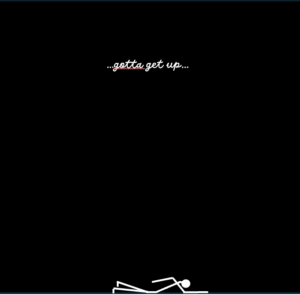
The next step…

Background on the general idea of 1 biosphere, the logic behind creating accessible stories AND supporting the stories by a rigorous trace back through scientific fundamentals, data, analysis and recommendations

Readers of the Boston Globe, LA Times, NY Times, The Guardian and Washington Post – among the major news outlets – get some of the best articles about what’s happening to the biosphere.
BUT…those articles usually appear in a section labelled “Climate ‘something’”; Climate and Environment, Climate Crisis, Climate, Climate California. And they typically appear after World (i.e. Wars and other disasters), US News (mostly politics and disasters), US Politics (politics), New York (New York politics), Business, Technology, Science, Sports, Obituaries (that’s for the NYT, similar for others) – but before Education and Health (with the position of those last two raising other concerns).
By framing what I have called “Biosphere Degradation” as “Climate Change/Crisis” we play into the hands of the opposing forces. The discussion immediately turns to technology – by which I mean both engineering technology (e.g. CCS, Transition Fuels, Nuclear Power, Geoengineering) and financial technologies (e.g. ESG (Environmental, Social and Governance), Offsets, Carbon tax, EV incentives). And the forces who most resist having a deeper discussion about biosphere degradation are experts at presenting the technology arguments.
Climate change is arguably the most important topic within the degradation of the biosphere. But by being highlighted as a news section, and by similar programs on TV and radio, it tends to overshadow considerations like biodiversity (see Note below), pollution, over-consumption (ultra-consumption?), climate justice, waste and so forth.
I simply ask that news outlets consider changing their headings to be more inclusive. “Biosphere Degradation” is probably too clumsy. Some other title that captures what we are doing to the biosphere, and by extension to ourselves and all future humanity, is needed. I guess that’s what editors are for – to find a catchy heading.
AND… “we” need to acknowledge that simply by reading this material we identify ourselves as part of the problem. That’s not an easy realization.
[see also my previous post – Climate Change? Meh]
NOTE – Climate Change and Biodiversity
Climate COP29 will take place in Baku, Azerbaijan from 11-22 November 2024
Biodiversity COP16 will take place in Cali, Colombia from 2 October to 1 November 2024
I am not qualified to make any comment about these conferences. I just wonder about the impact on the biosphere of thousands of delegates traveling to these meetings. And why they continue to be separate.
In our gut we “know” that technology will not solve global warming – let alone all the other factors that degrade our biosphere.
Yes, technology is absolutely required to curb GHG emissions. But it must be technology in support of humanitarian, ecological goals. And the application of technology must be supported by end-to-end analysis.
The fossil fuel industry tells us great stories about transition fuels, carbon offsets, green hydrogen, carbon capture and storage, geoengineering and so forth. But they are harmful stories, little more than delaying tactics. Even in the short term they do more harm than good. They delay the inevitable, hard decisions we need to make.
These two articles put some facts around things we already knew in our gut:
Exported gas produces far worse emissions than coal, major study finds

Photo from https://www.marineinsight.com/types-of-ships/biggest-lng-ships/
“Research challenges idea that sending liquefied natural gas around the world is cleaner alternative to burning coal.
“The idea that coal is worse for the climate is mistaken – LNG has a larger greenhouse gas footprint than any other fuel,” said Robert Howarth, an environmental scientist at Cornell University and author of the new paper. “To think we should be shipping around this gas as a climate solution is just plain wrong. It’s greenwashing from oil and gas companies that has severely underestimated the emissions from this type of energy.”
Drilling, moving, cooling and shipping gas from one country to another uses so much energy that the actual final burning of gas in people’s homes and businesses only accounts for about a third of the total emissions from this process, the research finds.
“The peer-reviewed research…challenges the rationale for a huge surge in LNG facilities along the US Gulf coast, in order to send gas in huge tankers to overseas markets. The US is the world’s leading LNG exporter, followed by Australia and Qatar.
Previous government and industry estimates have assumed that LNG is considerably lower emitting than coal, offering the promise that it could replace it in countries such as China, as well as aiding European allies menaced by the invasion of Ukraine by Russia, a major gas producer.
But … LNG expansion is not compatible with the world avoiding dangerous global heating, with researchers finding in recent years the leakage of methane, a primary component of gas and a potent planet-heating agent, from drilling operations is far higher than official estimates. …[in addition] as much as 3.5% of the gas delivered to customers leaks to the atmosphere unburned, much more than previously assumed. Methane is about 80 times more powerful as a greenhouse gas than carbon dioxide, even though it persists for less time in the atmosphere.”
[The quotations above are from a Guardian article and from the research paper on which it was based].
Ex-carbon offsetting CEO charged with multimillion-dollar fraud
“… former CEO of C-Quest Capital, indicted over allegations of carbon credit manipulation… stepped down as CEO of C-Quest in February this year. In June, the new management of C-Quest announced that they had reported their former CEO to US authorities for his role in allegedly faking emissions data to generate millions of worthless carbon credits…[in a] scheme that manipulated information on the impact of cooking stove projects in Africa and south-east Asia to make them appear far more successful at reducing emissions than they were in reality…to fraudulently obtain carbon credits by using manipulated and misleading data. They then sold those credits to unsuspecting buyers in the multi-billion-dollar global market for carbon credits.”
[Hopefully this story is an outlier in the business of carbon credits. Again*, we have a gut feel about offsets; maybe it is a financial technology necessary through the transition. But in my view, it is a delaying tactic. Offsets will not solve the degradation of the biosphere. In this particular instance the offsets are not just worthless, they actively, deliberately, help to degrade the biosphere.
The quotations above are from a Guardian article.
*Again? See my 2021 post on wood pellets. That entry is about the “carbon neutrality” of wood pellets. It is essentially an offset story with a slightly different title. It is accounting technology to support a GHG emitting industry.]
What’s the point of quoting these articles? How do they relate to E and F? How would the creation of a Federation of Environmental Organizations make any difference?
It’s about stories. E creates cover stories to have us believe that technology (engineering or financial) is the answer. We are told not to worry. We are told to keep spending; our lifestyle mustn’t change. Otherwise growth would stall, recession reign and chaos descend. F needs to create equally powerful stories, based on end-to-end research, based on facts. Stories that point to a bright future, but also clarify that some more fundamental changes will be necessary.
What are “E” and “F”? – Please look at the HOME page.
I fed the content of 1biosphere.org into NotebookLM, a Google AI product currently in “experimental” mode. It offers several different output formats and here are three of them: a PODCAST, a SUMMARY and a FAQ.
PODCAST
I think this is amazing. It sounds so real; two voices discussing 1biosphere.org – all without a human reading or voicing anything. Yes, it is a bit long and sometimes repetitive. It pulls in some items that are not part of the website and it does not reflect my emphasis in other areas. It also ignores differences between my direct input and where I quote others. Despite all that it is an interesting commentary in a format I never considered.
SUMMARY
This document argues for the urgent formation of a global Federation of Environmental Organizations, “F”, to combat the ongoing degradation of the biosphere, which it attributes to a powerful and destructive force it calls “E.”
E, representing forces like neoliberalism, oligarchy, and capitalism, is characterized as a system that exploits the biosphere for profit and power, often at the expense of human well-being.
The author outlines a vision for F as a unified, global force with the power to counter E’s influence. He proposes a structure for F, addressing key issues like vision, ethics, governance, finance, and marketing. He emphasizes the need for a global perspective, recognizing that local actions are insufficient to address the global scale of the problem.
The document uses a blend of scientific language, political commentary, and symbolic representations to illustrate its message, urging readers to act now to prevent irreversible damage to the biosphere.
[I quite like this summary]
FAQ: There Exists Exactly One Biosphere – An Appeal for a Federation of Environmental Organizations
1. Why is there an urgent need for environmental organizations to form a federation?
The current environmental crisis demands a united front. Individually, organizations lack the power and reach to combat the global forces degrading the biosphere. A federation (F) would amplify their efforts, provide a unified message, and effectively challenge entities like “E” (representing Neoliberalism, Oligarchism, Capitalism, etc.) that prioritize exploitation over sustainability.
2. What would be the primary goals of this federation?
“F” would strive to halt and reverse the degradation of the biosphere by countering the influence of “E.” This includes addressing climate change, pollution, biodiversity loss, and the exploitation of both humans and resources. It would operate globally while maintaining local action, fostering unity, and promoting effective solutions.
3. How would such a federation be structured and governed?
“F” could adopt a structure similar to successful multinational organizations, incorporating elements of corporations, government organizations, and even religious bodies. It would comprise departments, geographical divisions, partnerships, and a management structure, potentially resembling a United Nations focused on the biosphere. Leadership would emphasize shared responsibility, potentially avoiding traditional power structures.
4. What role would marketing and messaging play in the federation’s success?
Marketing is crucial to counteract “E’s” pervasive influence. “F” needs compelling branding (e.g., “1biosphere”) to unify its message and inspire action. It would leverage traditional and digital marketing strategies to communicate the urgency of the crisis, highlight “E’s” detrimental role, and offer a positive vision for the future.
5. How does the issue of consumption factor into the federation’s mission?
“F” recognizes that technological solutions alone are insufficient. It would advocate for a significant shift in consumption patterns, moving away from the “buy now, buy more” mentality promoted by “E.” The focus would be on promoting mindful consumption, valuing quality over quantity, and prioritizing the long-term health of the biosphere.
6. What stance would the federation take on politics, justice, and violence?
“F” would engage actively in the political sphere to counteract “E’s” dominance and advocate for policies aligned with its goals. It would promote a justice system that values the equal worth of all humans and safeguards their well-being. While rejecting illegal violence, “F” acknowledges the role of legal and ethical action to protect the biosphere and its inhabitants.
7. How does the concept of time impact the federation’s approach?
“F” adopts a “Deep Time” perspective, considering the consequences of actions over generations and millennia, contrasting with “E’s” short-term focus. It emphasizes the urgency of the present moment, recognizing that delaying action could push the biosphere past critical tipping points, making recovery impossible.
8. Is it realistic to believe that this federation can succeed against powerful entities like “E”?
While challenging, the success of “F” is possible. The author argues that humanity possesses the capacity for collective action, evidenced by organizations like the European Union and successful social movements. “F” aims to leverage this capacity by uniting environmental organizations, engaging in effective marketing, and promoting a vision of a sustainable future.
[The FAQ is OK. I assume it is structured more for a teaching situation, where students are asked to study a text and extract it’s meaning. Maybe not so applicable to the target audience here. Still, it’s not bad to generate this response in a matter of seconds.]
Overall, these results support my contention that we, the Federation (“F”), must be aware of the good and bad effects of AI. If it can so easily generate this output for me, it can do the same if presented a mass of misinformation. We can be sure E will use AI to its fullest extent. (See the home page for an explanation of the symbols “E” and “F”)
And, yes, I am aware of the energy use, and the GHG implications, of the AI farms that enable this sort of work. Which is of course the problem; we are our own enemy.
Evil and Good – Sauron and Hobbits, Vader and Jedi, Harkonnens and Fremen, Nazis and Allies, War and Peace, Voldemort and Harry, Minotaur and Theseus – tales of titanic struggles.
The sheer genius, skill and persistence needed to turn these ideas into great books and memorable films staggers me. Any of them could be a powerful metaphor in the struggle for the biosphere. And yet…
What struggle? I sit comfortably, with a hot cup of tea. Friendly men and women, sportily attired, blue poop bags at the ready, walk their dogs. The trees show the very first signs of autumn yellow. The fridge is well stocked. The cats are fed, lounging in the sun. The news is of wars, of vicious election rhetoric, of all sorts of disasters – all are distant, in space and time.
But this struggle, possibly the greatest humanity has faced since the invention of agriculture, is right here and now. Wars, quite apart from the personal tragedies, are environmental disasters. The elections will matter, even if the champions of a “green” future are less than perfect. The floods, fires, famine, diseases and displacements are real and immediate.
Why then don’t we act to stop degrading the biosphere in the same way we acted to counter other calamities?
Because the Enemy is us.
The Evil of Sauron, the tragic fascination of the ring (a metaphor for money?), Orcs, Trolls, Balrogs with their bad teeth, black blood, and disgusting eating habits, all present an obvious Enemy that needs to be defeated by any means. “The Fellowship of the Ring” becomes inevitable.
The “Star Wars” Empire, with its dispassionate destruction of an entire planet and casual use of torture, justifies an armed Federation – with the Force on their side.
The hideous Lord Harkonnen and his weird nephews, abetted by the inept Emperor of “Dune” is justly defeated by the Fremen eco-warriors – using the power of spice and worms.
The Minotaur, half bull, half man, hides in his labyrinth (a metaphor for offshore accounts and shell companies?) and eats Athenian sacrifices until killed by Theseus. And Theseus only finds his way back out by following Ariadne’s thread.
All these stories have repellent villains and relatable heroes. If our champions have any flaws, they are all very forgivable, more than offset by the secret powers they manage to harness.
Closer to our reality, the second world war started just 85 years ago, 25 years after the start of the first one – the “war to end all wars”. The Evils of Hitler and the Nazi regime are exhaustively documented. As are the root causes and the need for an alliance to defeat them. Unfortunately, the lessons of that recent history seem to be forgotten. As Cate Blanchett (Galadriel) says in her voice-over to “The Fellowship of the Ring”; “Much that once was is lost, for none now live who remember it.”
—
But what if Evil hides in plain sight? When the supporters of biosphere degradation are well dressed, well-coiffed, articulate and successful A-type personalities the task becomes so much more difficult. They appeal directly to our wants – which have been nurtured in us since birth by continuous advertising and other stories. If our national, economic, religious and ethnic identities are at risk – and the prosperity of our family and community is threatened – should we not listen to their Siren song? (Metaphor… beware of the deadly reefs). And, secretly, don’t we wish to be friends with those confident, smiling, fit, young spokespeople who sell these ideas? Don’t we want to be like them?
This conundrum always brings me back to a logical, unemotional approach to the entire discussion. Others have brought long experience, deep knowledge, passion and determination to the fight. They have the skills and resources to create informative analyses, thoughtful recommendations and make them understandable, entertaining and convincing.
I will try and stick with the symbol “E” for the, seemingly invincible, forces that compel us to degrade the biosphere and “F” for the, as yet nonexistent, federation, or fellowship, of Environmental Organizations that I believe is needed to influence and change “E”.
By all means let’s use metaphors, but let’s also face up to the real effort, which needs us to join in honest, coordinated, consistent, difficult work – without magic.
—
Despite all that, of course I can’t resist a metaphor, no matter how twisted. Here is my tale of Ariadne’s thread. It also appears in Appendix 3 of my “Appeal and Challenge to the Environmental Organizations”, here and on 1biosphere.org
ARIADNE’S THREAD
I admire Europe. Not the geography, the history, the castles or the cuisine – although those are all fascinating – but the idea. Here is a bunch of people that speak different languages, have different economies and, for much of recent history, have systematically maimed and killed each other. Yet, they have formed a union, a Federation, that works. It is an incredible achievement[1].

Europe’s flag, its symbol, is a circle of 12 gold stars on a blue background[2].
The flag, if you allow a little whimsy, reminds me of the constellation Corona Borealis, the Northern Crown.

This arrangement of stars is known as the “Poor People’s Bowl”, the “Camp Circle”, the “Woomera”, the “Boomerang”, or the Welsh goddess “Lady Arianrhod” among other titles.
But in Greek mythology this constellation is the crown, made by Hephaestus, which Ariadne threw into the sky after her wedding to Dionysus.

Titian, 1520 – “Bacchus and Ariadne” – National Gallery, London
Throwing her crown into the heavens is no mean feat, but Ariadne’s real fame comes from the slaying of the Minotaur. Without her Theseus would likely not have dared to venture into the labyrinth. Even if he did manage to find the monster, and kill it, he was unlikely to find his way out again.
That monster may still be devouring human sacrifices had she not secreted the red thread – Ariadne’s Thread – which Theseus unwound to find his way back out of the labyrinth.

Theseus and the Minotaur, Athenian black-figure kylix 6th century BCE. Toledo Museum of Art
Today, one meaning of “Ariadne’s Thread” refers to solving a problem which has multiple apparent ways to proceed – such as a physical maze, a logic puzzle, or an ethical dilemma – through an exhaustive application of logic to all available routes.

If the European Union is a logical solution to preventing another war on that continent, then, maybe, the union, or Federation, of Ecological Organizations (“F”) is a logical solution to preventing irreversible degradation of the biosphere – linked by Ariadne’s Thread and our basic axiom;
There Exists Exactly One Biosphere.

[1] It is a total shame that the UK decided to leave that union. And why, once again, are political parties that promise a retreat to the horrible past of nationalism, racism and so many other forms of discrimination, gaining support? See also my previous post on “Europe – what if?”.
[2] Why 12 stars? 12 is just a nice number – divisible by 1, 2, 3, 4, 6 and itself. The EU currently has 27 member states.
NJ – what are you trying to do? Discourage people from buying EVs? I guess if you can afford an EV (not me BTW) then a measly $1060 (the first 4 years are payable up front) on top of the regular registration fee is nothing. But is this really the message you want to send?
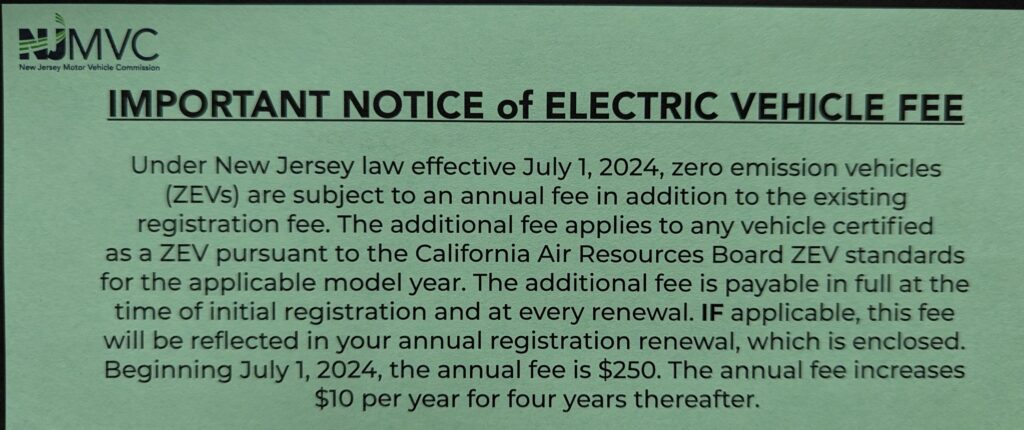
CHARGEVC.org comments: “…the whole EV incentive programs [are] a “hot mess … while there are also federal tax incentives for some vehicles that can save buyers up to $7,500, that program doesn’t cover all the EVs on the market….The state program is on-again, off-again. The federal program applies to less than half of the electric vehicles in the marketplace. So consumers are terribly confused and uncertain about it.”
Just another reason for Environmental Organizations to unite and present a clear picture of what is happening – and influence the drafting of these budgets and rules.
It would be understandable if this extra revenue were to go toward building the charging infrastructure needed for the transition to EVs. But no, this money will go to standard repair and maintenance. And who causes the most wear and tear? Hint: Not EVs!
I see that a number of other US states charge similar fees. But that’s not good news. Why copy bad policy?
—
The “on-again, off-again” comment also wakes some not so pleasant memories. Changes in the NJ residential energy retrofit programs caused some companies in that field to either go out of business or drastically scale back their operations – and stopped many others from ever participating.
The proposal that follows – for a Federation of Environmental Organizations – has been raised here several times. The pdf below is the latest iteration. Another copy is at 1biosphere.org – the version on that site will be edited as needed. The .org site as a whole will become active when others become interested and we make some actual progress.
Click on the pdf below to allow navigation within the pages. It is easier to read if downloaded. Download button is located on the pdf toolbar, left. On phones or tablets you may need to click the “1biosphere A5 August 2024” link to make it visible.
Please send comments or questions to 1biosphere.org@gmail.com
That seems like a totally obvious statement. But it is nice to be reminded and have some solid research to back it up. Here are a few quotes from an article in The Guardian, with the full paper at plos.org.
Repeating climate denial claims makes them seem more credible, Australian-led study finds. Even those who are concerned about climate crisis were influenced by false claims, showing how ‘insidious’ repetition is, researcher says.
“Repeating false and sceptical claims about climate science makes them seem more credible – including to people who accept the science and are alarmed by the climate crisis.”
“…soon-to-be-published research had found that climate sceptical claims and climate misinformation tended to “travel faster, further and longer from its origin than accurate climate information”
“The cognitive science is pretty clear that repetition is a very powerful tool because of how we process information. The more we hear something, from multiple sources, including those we trust, the smoother it becomes to process, the more accepted it is as ‘just known’.”
“Climate communications need to focus on repeating what is known and true much more than debunking, myth-busting and repeating what is not.”
The paper concluded: “Do not repeat false information. Instead, repeat what is true and enhance its familiarity.”
It would be really nice, but highly unlikely, if the editors of the major media would heed that little bit of advice. Once again they are providing millions of dollars of free advertising to the people who spout the most dishonesty. I guess it makes sense; misinformation can be short, sharp and mean. It sells.
These headlines, from just one morning, illustrate the huge amount of information regarding the degradation of the biosphere flooding us every day. I think they support my contention that we need a marketing focused entity to digest, package and distribute the underlying messages. (see previous post)
Global methane emissions rising at fastest rate in decades, scientists warn. Researchers call for immediate action to reduce methane emissions and avert dangerous escalation in climate crisis.
Kamala Harris will not ban fracking if she wins White House, campaign says. Harris, who had previously urged fracking ban, plans to highlight climate contrast between Democrats and Trump.
[This election is now less than 100 days away. A Republican win in any of the federal races, presidential, senate or house, will severely impact environmental action worldwide. State and local results will also have effects well beyond their borders]
Firefighters continue battle against more than 100 blazes burning in the US. Many fires ignited by weather, with climate crisis increasing lightning strikes amid blistering heat and dry conditions
Greening the desert: is Sisi’s grand plan using up all of Egypt’s water? The ‘Future of Egypt’ envisages turning tracts of desert into farmland to grow crops for export. But with sky-high food price inflation and a water deficit, critics doubt it is viable
Costly climate ‘solutions’ look like more pollution in Louisiana’s ‘Cancer Alley’
How ‘world’s first oil town’ is wrestling with fossil fuel legacy. Cop29 host Baku has cleaned up since its Black City days – but this summit needs to do more than whitewash the facade of a petrostate.
[My take on COP28, in Dubai, was that the forces which compel us to degrade our biosphere manage to exert control in everything. “Tens of thousands fly to COP 28 – which is somewhat ironic in itself – (… and these forces) stack the deck with fossil fuel enthusiasts.” One of the outcomes, hailed as a great success, were initial pledges of $400 million to compensate poorer countries for damages related to climate change. Which is a trivial amount given the costs now and into the future. At much the same time a US foundation pledged $500 million to fund various monuments. I know this is a false equivalence. I know the monuments are a worthy, beautiful cause. But really, where is the justice in this? (see previous post)]
Inside the battle for top job that will decide the future of deep-sea mining. Marking a pivotal moment for the fate of the barely known ecosystems on the ocean floor, 168 nations will decide this week who will head the International Seabed Authority.
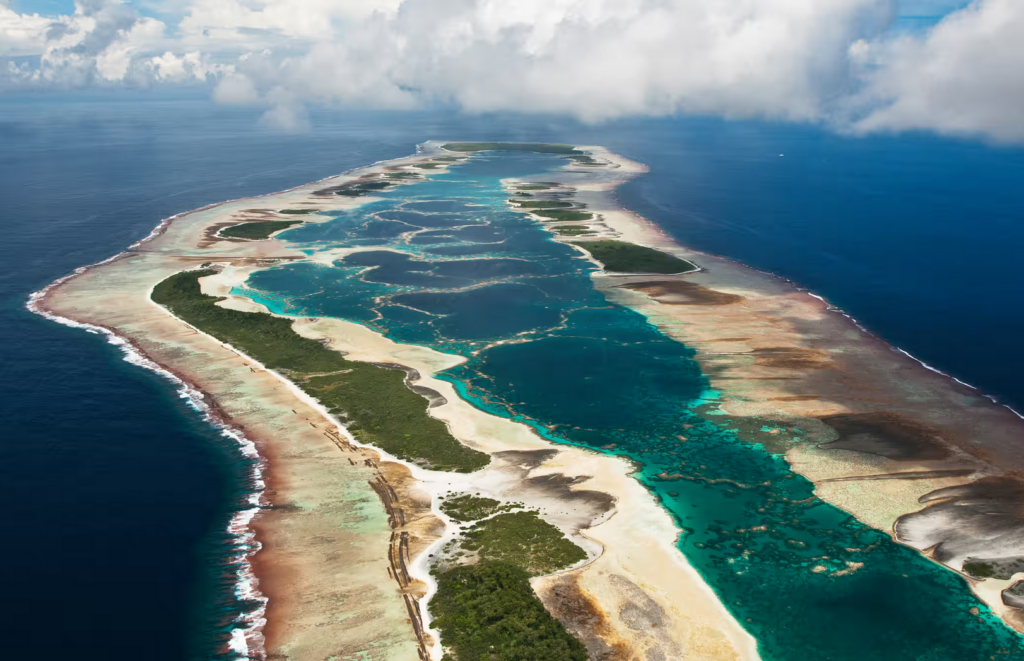
‘Morally, nobody’s against it’: Brazil’s radical plan to tax global super-rich to tackle climate crisis. A 2% levy would affect about 100 billionaire families, says the country’s climate chief, but the $250bn raised could be transformative.
‘Your body is completely drained’: US workers toil in heatwaves with no protections. Though 2,300 people in the US died from heat-related illness in 2023, workers await robust protection laws.
Australia’s north-west reefs teem with life – but they are also at the centre of a massive fossil fuel expansion.
Unseasonal rainfall leaves Seine safe swimming plan in tatters at Paris 2024
As record heat risks bleaching 73% of the world’s coral reefs, scientists ask ‘what do we do now?’ A vast array of solutions are being worked on but experts urge a ‘fundamental rethink’ as temperatures are forecast to climb even higher in coming decades.
‘It doesn’t need to be one or the other’: balancing brolgas and windfarms in Victoria. Victorian brolga numbers have shrunk due to habitat loss and drying wetlands. Now conservationists are calling for careful planning of windfarms.
A ‘scare campaign’ over national parks? The fight over the future of Victoria’s forests. Conservationists say the push to protect forests and endangered species with a giant national park has become mired in ‘disinformation’
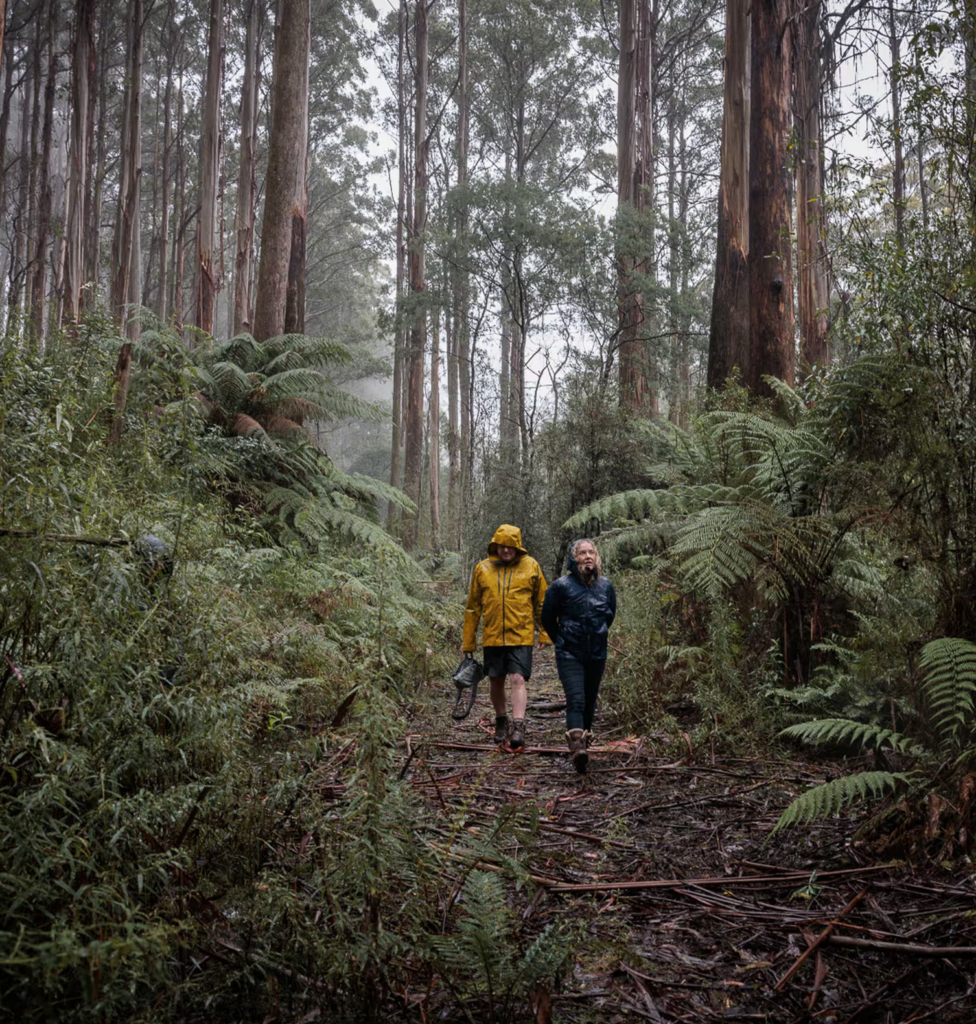
‘No one understands local issues better’: rural councils call for greater role in renewable energy transition. NSW, Victoria and Queensland local governments have limited roles in approving developments but advocates say they’re best placed to keep communities on side.
Wind and solar energy overtake fossil fuels to provide 30% of EU electricity. Report finds 13 member states generated more energy from wind and solar power than coal and gas for first time in 2024.
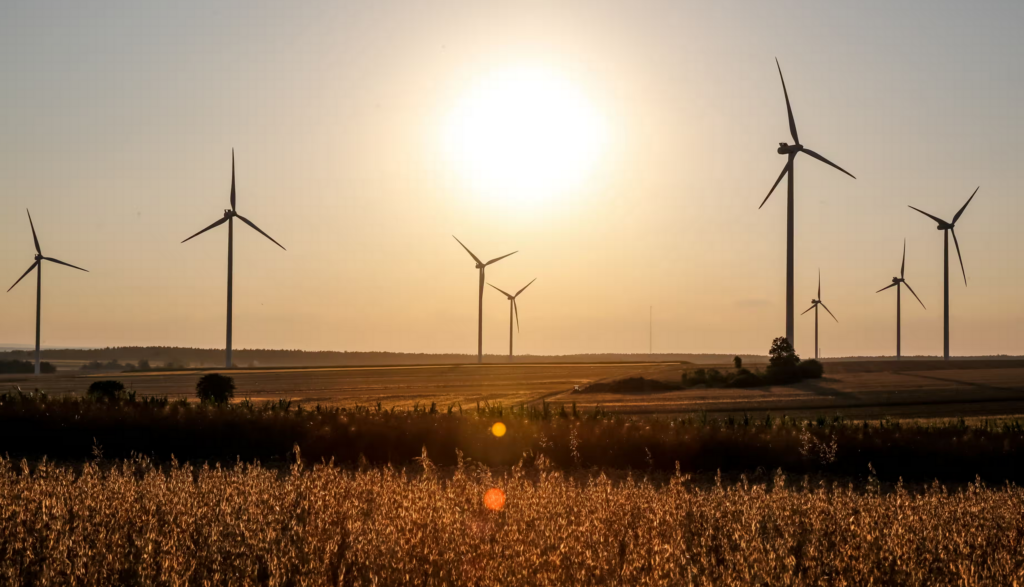
‘Warning sign to us all’ as UK butterfly numbers hit record low. Conservation charity raises alarm over climate crisis after wet spring and summer dampen mating chances.
BP to hand investors $7bn this year after profit beats forecasts. Oil and gas company to increase dividend and buy-backs as quarterly profit hits $2.8bn.
Wildfire smoke may increase the risk of dementia, study finds. As blazes spew smoke across western US, research shows it may be worse for brain health than other types of pollution.
…and more fire, more war:


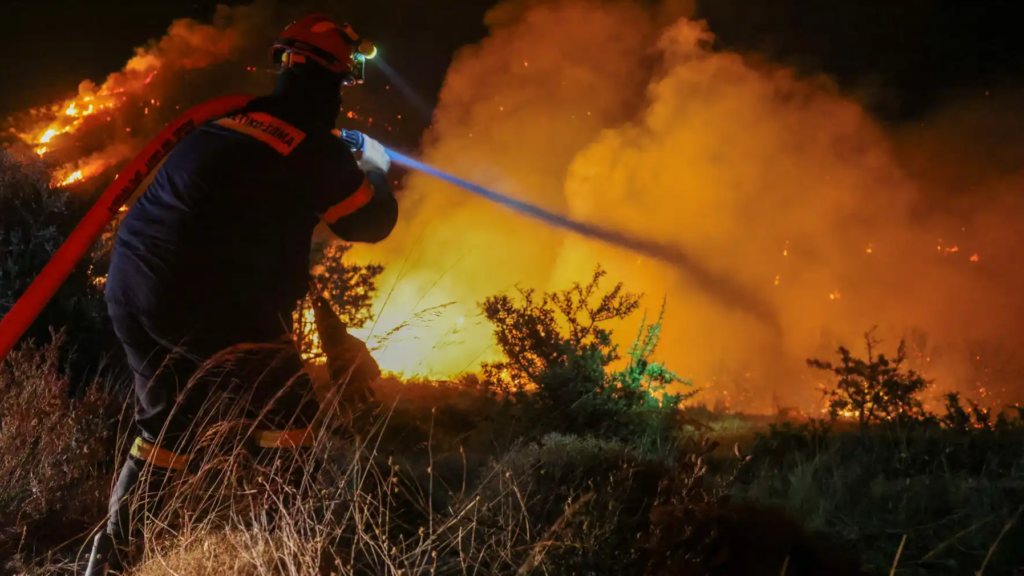
We can blindly continue like this, driven by national and economic impulses, or unite and halt the degradation of the biosphere. Your choice.
“The chaos of the past few days suggests there has never been a better time to stand still and take stock – yet it feels as if we are hurtling somewhere at twice the speed we were even last week”. That was Marina Hyde in the Guardian on the 16th of July. Today is the 23rd, and the statement is twice as true.
“Stand still and take stock”. We don’t have time for that sort of whimsy. Let the world keep rushing on.
But what is happening to the biosphere while we rush?
Despite the laudable renewable energy programs initiated under the Biden/Harris administration the US is still a major contributor to global warming. “The United States produced more crude oil than any nation at any time … for the past six years in a row.” (US EIA). Election of a Republican president and/or senate in the US will be devastating to environmental programs. But fossil fuel extraction will probably not change much under either party.
The governments of the UK and Australia, both under Labor control (UK since July 4, Australia since May 2022) also indicate no significant reductions in fossil fuel extraction – all in the name of national security, economics and, inevitably, electability.
Clearly there are very powerful forces that compel us to degrade our biosphere, and therefore ourselves. These forces transcend politics and nations. They appear unstoppable.
The Environmental Organizations – no matter how knowledgeable, committed and persistent – are, by comparison, small, local and inefficient. They must, urgently, form a federation with the power and reach to halt and, if possible, to reverse the degradation of the biosphere.
We must stand still, take stock and act urgently – all at once. It is possible.